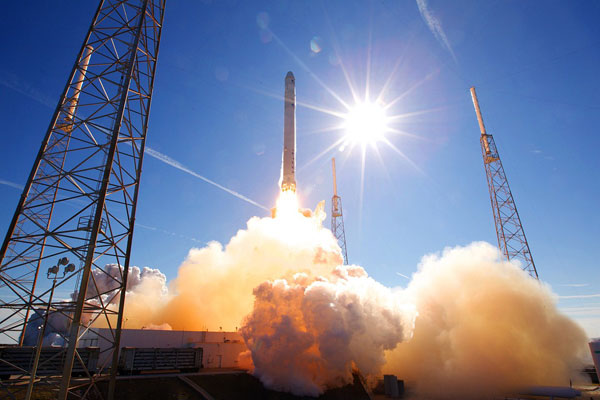South Korea stepped into the private space industry

[SpaceX Rocket. Photo Credit to Pixabay]
On March 21, Innospace, a private space industry enterprise, successfully launched Korea’s first solid fuel rocket.
“It was a success earned after a long struggle” stated Kim Soo-Jong, CEO of InnoSpace.
The testing of their first rocket, Hanbit-TLV on December, 2022 was delayed due to weather issues.
Their second attempt was held on March 8, 2023, but this trial failed due to machinery error.
Therefore, on March 20, Hanbit-TLV, was launched in the Brazilian Alcântara Launch Center.
On the following day, InnoSpace revealed the success of reaching their objected altitude for Hanbit-TLV.
Through this accomplishment, Innospace was recognized as the first private space industry enterprise to successfully launch in South Korea.
Innospace is a private company that creates personal rockets which match the needs of their consumers.
Innospace is devoted to creating space for hybrid rocket technology dominance.
InnoSpace is planning to list for the stock market and push the commercial launch service next year, through creating a ‘telephone operator’ to satellite companies who can’t create engines to transfer their own satellites.
HanBit-TLV is powered with solid fuel,a newly rising technology, to inject more fuel to the rocket with limited space.
The reason why solid fuel is in the spotlight is due to its ease of operation.
Innospace capitalized on this by mixing the features of solid and liquid fuel to create fuel that’s simple and able to operate thrust power.
The existing era of space is called ‘old space’ where governments fight in a ‘space race’, as rather ‘new space’ is where the availability of participation for private space industry enterprises increased.
Currently, the private space industry is concentrated around countries with great power.
As the ‘New Space’ era opened, many companies such as SpaceX of the US, Virgin Galactic of the US, Blue Origin of the US, Starlink, the Kuiper Project of Amazon, and UK’s Oneweb appeared on the horizon.
The common characteristic of most of these companies is the provision of ‘customer base’ service.
Since they aren’t supported by the government, they rely on customers and selling their products.
For example, Oneweb of UK, is a company, government customer, and school based enterprise.
They have currently placed 618 satellites into orbit, and are planning to provide satellite internet service globally.
Starlink is another company that is based on customer service with their main difference being that it is based on popularizing, not selling to minor people only.
They believe that sending signals from space is much faster and more efficient than shooting up from the ground, so they are planning to create ‘6G’(2025), which will make the popularization of UAM(Urban Air Mobility) possible, which is targeted to the B2B market.
Also, Starlink is planned to be activated in Korea from the 2nd quarter. Furthermore, it will be stretched to Oceania and Asia, which will help residential areas with the difficulty of Internet connection.
According to many professionals, the private space industry enterprises might be able to stand in the place of a market-dominating industry when the 6G era arrives, where satellite communication is speculated to be the basic communication infrastructure.

- Min Hyuk Yoo / Grade 8
- Dongtan Mokdong Middle School

![THE HERALD STUDENT REPORTERS [US]](/assets/images/logo_student_us.png)
![THE HERALD STUDENT REPORTERS [Canada]](/assets/images/logo_student_ca.png)
